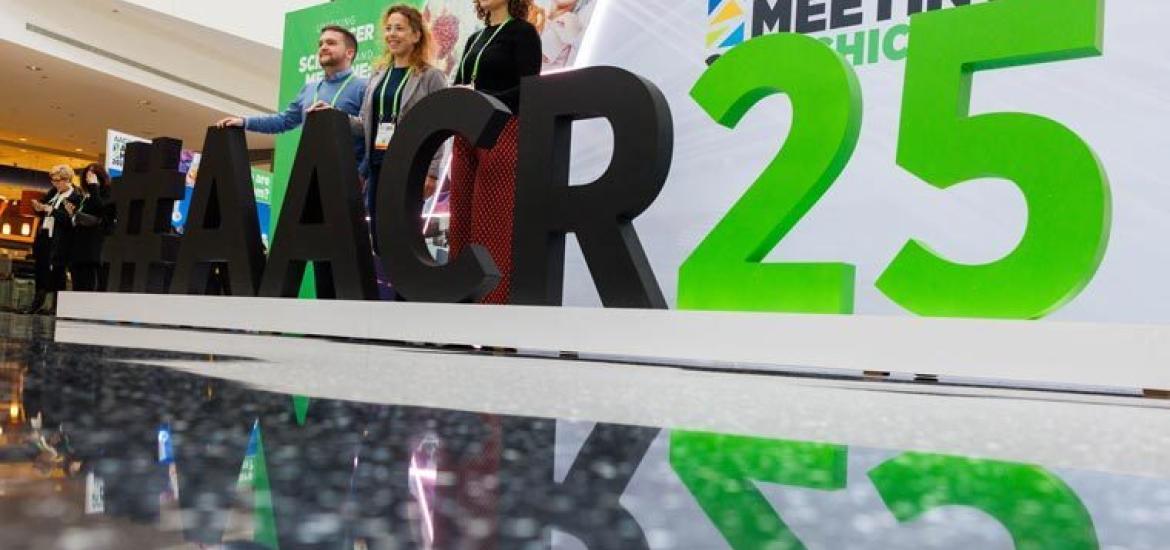
AACR 2025 – an academic reminder about Jemperli
An MSKCC study continues to show a 100% response rate in pre-operative rectal cancer.
An MSKCC study continues to show a 100% response rate in pre-operative rectal cancer.

On Wednesday GSK said its pivotal phase 2 Azur-1 study, testing Jemperli as a means of delaying or eliminating surgery in pre-operative rectal cancer, was fully enrolled. A few days earlier AACR featured an update to the mid-stage academic study that originally moved GSK to pursue this setting commercially.
That trial, led by Dr Andrea Cercek at Memorial Sloan Kettering Cancer Center, first caused a splash at ASCO in 2022, when it was reported that the first 14 patients with dMMR rectal cancer who had completed six months' Jemperli therapy had all gone into complete remission. Remarkably, those data weren't even press released by GSK, but the setting is now on the company's agenda.
Azur-1, an uncontrolled monotherapy trial, seems likely to back an accelerated approval filing for Jemperli; two years after starting it has enrolled all 154 patients, GSK says, and its readout is a 2026 catalyst. Meanwhile, the controlled phase 3 Azur-2 study continues to enrol a planned 711 patients, and compares Jemperli versus chemo.
Selected Jemperli trials in pre-operative settings
| Study | Setting | Design | Note |
|---|---|---|---|
| MSKCC ph2 trial | dMMR solid tumours | Uncontrolled, +/- chemo | 100% CR rate in 49 rectal cancers; 65% CR rate in 54 non-rectal cancers |
| Azur-1 ("pivotal" ph2) | Stage II or III dMMR/MSI-H rectal cancer | Uncontrolled, monotherapy | Fully enrolled, data due 2026 |
| Azur-2 (ph3) | T4N0 or stage III dMMR/MSI-H colon cancer | Monotherapy, vs chemo | Enrolling, ends 2028 |
Source: OncologyPipeline.
At AACR Cercek said the MSKCC trial had now treated 117 patients, with 103 completing six months' Jemperli. 49 of these had dMMR rectal cancer, and all developed clinical complete responses, meaning that they do not require surgery.
It's for this reason that this trial uses Jemperli as a "curative-intent therapy"; early-stage rectal cancer patients are typically treated with chemo and/or radiotherapy, before undergoing surgery to have their cancers removed, but the MSKCC work suggests that Jemperli could change clinical practice by delaying or even eliminating these current treatments.
Now Cercek is suggesting an even broader use for Jemperli here, presenting data from cohort 2 of MSKCC's study, which comprises solid tumours beyond rectal, and including stomach, biliary, genitourinary and gynaecological. 54 of these patients have now had six months' Jemperli, and the clinical complete response rate is 65%, she told AACR.
While this is less impressive than the 100% number for rectal cancer, the fact that across the entire trial 81% of patients have not required surgery seems highly positive. This is especially true given that this trial was originally designed with the aim of showing a 25% ORR.
And big pharma?
It was something of an embarrassment that when MSKCC first revealed the knockout data three years ago GSK barely acknowledged them; it took another year for Jemperli to go into company-sponsored development in this curative-intent setting.
Not only was GSK apparently not interested, at the time there were no other industry-sponsored studies ongoing with any anti-PD-(L)1 drug in pre-surgery dMMR cancers. One possible reason is doubts about the market size; at ASCO 2022 Cercek said 5-10% of rectal cancers were dMMR, amounting to 40,000-75,000 patients globally, but it took MSKCC 29 months to enrol just 18 of them.
Jemperli is available commercially for second-line dMMR solid cancers, while Bristol Myers Squibb’s Opdivo is approved for dMMR colorectal cancer second line, or first line as part of a Yervoy combo; Merck & Co’s Keytruda has a front-line dMMR colorectal cancer and second-line dMMR tumour-agnostic label. However, these are all metastatic settings in which tumours aren't operable.
With next year's readout of Azur-1 it should become evident whether Jemperli has a commercial future in the pre-operative setting.
2000













